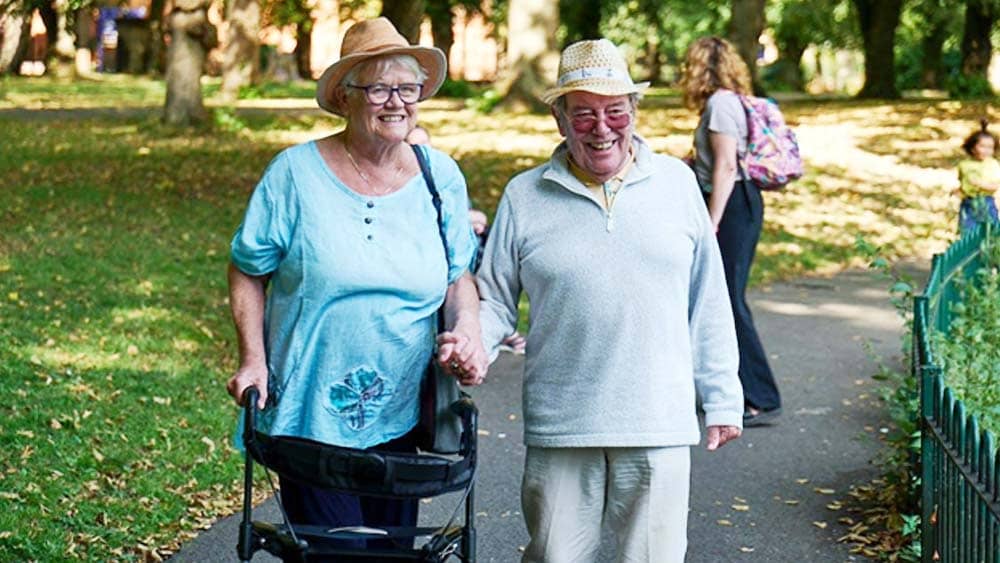
Navigating the golden years can be a journey of joy and challenges. For many older Australians, maintaining independence while receiving the care they need is a top priority.
Enter Home Care Packages. These are government-funded services designed to support seniors in living independently at home.
But how do you access these services? The process can seem daunting, especially when you’re juggling other responsibilities.
In this blog, we’ll walk you through the process of applying for Home Care Packages in South Australia.
Understanding Home Care Packages
Home Care Packages, or HCPs, are tailored solutions to support seniors living at home. They give you access to services ranging from personal care to household chores, transport, and even some home modifications.
These packages are organized into four distinct levels, each catering to different care needs. The higher the level, the more comprehensive the support.
Here’s what Home Care Packages typically can include:
- Personal care (bathing, dressing)
- Domestic help (cleaning, cooking)
- Health services (nursing care, allied health)
- Transportation for errands and social activities
The goal is to enhance your independence while ensuring your safety and well-being. Home Care Packages adapt to your changing needs, ensuring that you receive the right level of assistance at the right time.
The Benefits of Home Care Packages for Independence
Home Care Packages are a lifeline for many seniors striving to live independently. They provide much-needed support without disrupting personal freedom.
By receiving help at home, older adults can stay in familiar surroundings, reducing stress and boosting comfort. This approach can often delay or even eliminate the need for moving to a residential aged care facility.
Moreover, Home Care Packages empower seniors by allowing them to make choices about their care. This includes deciding which services they need and when they need them.
Finally, these packages foster a sense of belonging. Seniors can remain engaged with their community in Adelaide or South Australia, maintaining relationships and activities they cherish.
Step-by-Step Guide to Applying for a Home Care Package
Applying for a Home Care Package might seem complex, but it’s quite manageable. Start by assessing your care needs. Consider what support you need at home.
Then, you can begin the application process through My Aged Care. This is your gateway to accessing the services you need.
You’ll need an ACAT assessment. In South Australia, this is conducted by the Aged Care Assessment Team.
Understanding the levels of Home Care Packages is crucial. There are four levels, each providing different levels of support. Your assessor will decide which level of care is most suitable for your current needs
Choosing a provider is a key decision. Look for a Home Care provider that aligns with your needs and values.
Once you’ve chosen a provider, the next step is finalising the Home Care Agreement. This document outlines the services you’ll receive.
Don’t worry—help is available if you get stuck. Each step is supported by guidance and resources.
Patience is important during this process. It can take time, especially when waiting for an ACAT assessment.
Successfully navigating the application process can greatly enhance your life quality. Take it one step at a time.
Step 1: Assessing Your Care Needs
Begin by evaluating what type of help you need. Consider daily tasks that are becoming difficult.
Reflect on your lifestyle and health. Are there areas where support would improve your comfort?
It might be helpful to involve family or caregivers. They can provide insights into needs you might not notice.
A comprehensive assessment ensures you request the right level of care. This is an essential first step.
Step 2: Starting the Application Process
Once your needs are clear, the next step is applying. Use the My Aged Care website to start your application.
The application process involves providing personal details and current care needs. Ensure you have all necessary documents ready.
Don’t hesitate to contact My Aged Care if you have questions. They’re there to help guide you through the process.
Starting the application process is an important move towards getting the support you need.
Step 3: ACAT Assessment in Adelaide and South Australia
After applying, you’ll need an ACAT assessment. This evaluation determines your eligibility for a Home Care Package.
The Aged Care Assessment Team conducts these assessments. They assess your health and care needs in person, usually in your own home. You can have someone with you at the assessment if that will help you feel more comfortable.
Prepare by having a list of your care needs and any medical documents ready. This helps ensure the assessment is thorough.
The ACAT assessment is a critical step in determining the support you’ll receive.
Step 4: Understanding the Levels of Home Care Packages
Home Care Packages come in four levels. Each level provides varying degrees of assistance based on individual needs.
Level 1 offers basic support, while Level 4 provides high-level care. These options ensure tailored support.
It’s crucial to understand which level suits your needs. Your ACAT assessment will indicate which level you’re eligible for.
Knowing the levels helps you plan and manage expectations for your home care.
Step 5: Choosing a Home Care Service Provider
Selecting the right provider is vital. Look for Home Care Services that meet your specific needs.
Consider their reputation, flexibility, and the services they offer. This ensures a good fit for your care needs.
It’s helpful to speak with several providers before making a decision. Don’t rush; this choice affects your daily life.
The right provider will enhance your quality of life with tailored support.
Step 6: Finalizing the Home Care Agreement
The last step involves finalizing your Home Care Agreement. This document outlines your care plan and budget.
Review the agreement carefully. Ensure it matches the services and care you’ve discussed with your provider.
Ask questions if anything is unclear. Understanding your agreement fully is important for maximising your care.
Once finalised, your Home Care Package will be in place to support your independence.
Managing Your Home Care Package
Once your Home Care Package is active, effective management is key to reaping its full benefits. Communication with your service provider is crucial. Keep them informed about any changes in your needs.
Regularly check your care plan. It should evolve to reflect any shifts in your health or personal circumstances. Flexibility is essential, so don’t hesitate to request changes.
Stay organised by keeping records of services received and any correspondence with your provider. This helps ensure your package is being used effectively.
Remember, it’s your care plan. You have the right to tailor it to suit your lifestyle. Engage actively with your provider to maximise the benefits.
Creating an Individualized Budget and Care Plan
A well-thought-out budget and care plan is your roadmap to receiving optimal support. Start by identifying your priorities. What services do you need most?
Work with your provider to draft a personalised care plan. This should outline specific goals and outcomes you wish to achieve.
Your budget should reflect these goals. Allocate funds to areas providing the most benefit. Regularly review expenses to ensure alignment with your needs.
An individualised care plan empowers you to direct your care effectively. This ensures your independence and quality of life are prioritised.
Community Engagement and Additional Support in Adelaide
Engaging with the community boosts your well-being. Consider joining social clubs or hobby groups in Adelaide. These activities keep you active and connected.
Additional support is available through various local resources. Look for community centers offering programs tailored for seniors. They provide valuable social interaction and learning opportunities.
Don’t overlook services like transportation or meal delivery. These can further promote your independence and make daily tasks easier, and are able to be partially funded by your Home Care Plan.
Remember, staying involved is a key part of maintaining mental and physical health. Embrace the vibrant community life available for older Australians in South Australia.
Conclusion: Embracing Aged Care Services for a Better Life
Home Care Packages offer freedom and quality of life. By applying for these services, you’re investing in your future well-being. Premium Home Care Service (PHCS) is available provide high quality and diverse care for our amazing clients.
Embrace the support available to you in South Australia. With the right resources, you can lead a fulfilling and independent life. Enjoy the golden years with dignity and peace.
















 by Paul Hanaoka (https://unsplash.com/@plhnk)
by Paul Hanaoka (https://unsplash.com/@plhnk)


